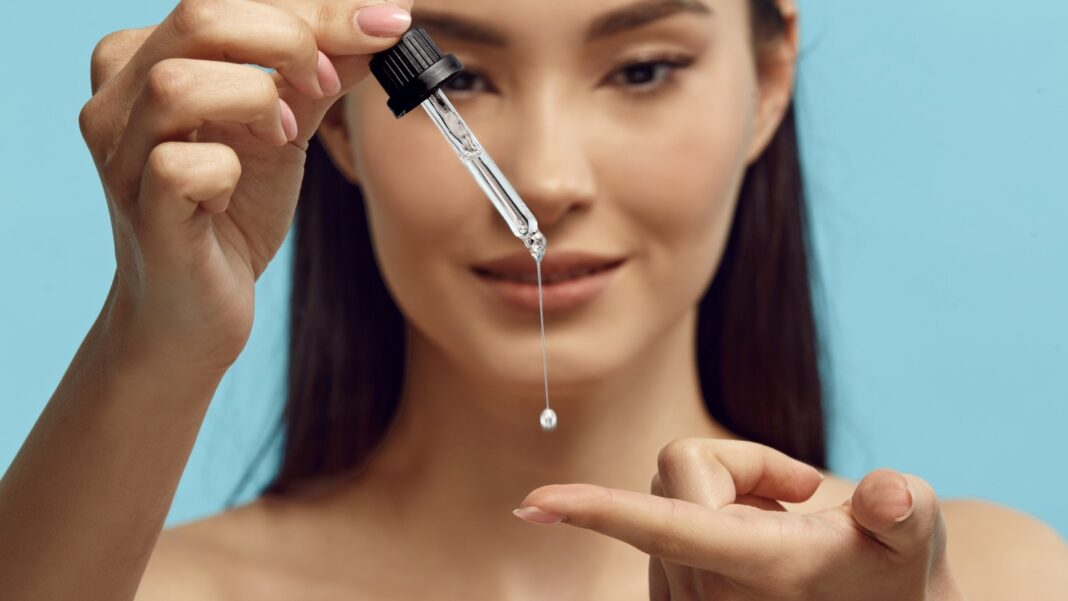Retinol is one of the most beneficial skincare ingredients. However, can you use retinol during pregnancy? Let’s find out.
Your skincare routine and ingredients are typically chosen based on your skin type and concerns. However, during pregnancy, prioritising your baby’s safety is also important. Your baby can be affected by some skincare ingredients you use, and retinol happens to be one of them. Despite being a potent skincare ingredient, retinol may impact your baby’s development in the womb, potentially leading to birth defects. Hence, to protect your baby, it may be crucial to avoid use of retinol during pregnancy. Read on to learn the side effects of using retinol while pregnant and some safer alternatives to retinol.
What is retinol?
Retinol, a chemical derived from vitamin A, is a key ingredient in skincare products such as eye creams, wrinkle gels, serums, lotions, and more. It is a powerhouse ingredient renowned for its ability to improve skin texture, reduce the appearance of wrinkles, and promote collagen production. When applied topically, retinol works by stimulating cell turnover, helping to slough off dead skin cells and revealing smoother and brighter skin. It also has antioxidant properties, which can help protect the skin from environmental damage and signs of ageing, giving you youthful-looking skin. Retinoids are available in three forms, which are tretinoin, isotretinoin, and retinol.
- Tretinoin: A potent retinoid used for treating acne and reversing signs of ageing.
- Isotretinoin: A powerful retinoid primarily prescribed for severe acne and breakouts
- Retinol: A milder form of retinoid found in many over-the-counter skin care products and known for its anti-ageing properties.

Can you use retinol during pregnancy?
The clear-cut answer to this is no. It is generally advised to steer clear of using retinol during pregnancy. While retinol boasts powerful skincare benefits such as anti-ageing and anti-acne properties, it can pose risks when taken orally, especially during pregnancy. Dermatologist Dr Atula Gupta warns, “Retinol, derived from vitamin A, can be dangerous in high doses for pregnant women.”
Vitamin A is a fat-soluble vitamin that is crucial for fetal growth. It supports eye health, immune function, and skeletal development. However, excessive intake, whether from direct vitamin A or its derivatives like retinol, can lead to vitamin A toxicity as it can be absorbed by the foetus.
Also read: Retinol is a skincare hero, but here’s how you can go wrong with it
Risk factors of using retinol during pregnancy
Oral intake of high doses of vitamin A during pregnancy has been linked to an increased risk of birth abnormalities. It may result in the risk of miscarriage, birth defects like heart and eye issues, intellectual and developmental disabilities and premature birth, according to a study by Nutrient.
- Miscarriage
- Birth defects like heart and eye issues
- Intellectual and developmental disabilities
- Premature birth
Other common side effects of using retinol during pregnancy may include irritation, redness, and peeling of the skin. While oral use of retinol is unsafe and should be avoided, a study published in the Journal of Clinical and Aesthetic Dermatology reveals that women exposed to topical retinoids during the first trimester of pregnancy do not seem to be at higher risk for major birth defects. However, it is still recommended to avoid retinol altogether.
What are the alternatives to retinol during pregnancy?
If you are wondering what you could use instead of retinol during pregnancy, here are 5 alternatives:
1. Alpha hydroxy acid (AHAs)
AHAs, such as glycolic acid, are derived from sugarcane that gently exfoliates your skin and is effective in promoting skin cell turnover, improving texture, and reducing acne without posing a risk to pregnancy.
2. Hyaluronic acid
Hyaluronic acid can help to hydrate and plump up the skin, reducing wrinkles and fine lines. It is suitable for all skin types and is considered safe during pregnancy.
Select Topics of your interest and let us customize your feed.

3. Vitamin C
Vitamin C, when used topically, helps to brighten the skin and promote collagen formation. Vitamin C is a powerful antioxidant and protects the skin against environmental damage.
Also read: Listen up, ladies! Steer clear of these 6 skincare ingredients during your pregnancy
4. Sunscreen
Sunscreens can be safely used during pregnancy. A broad-spectrum sunscreen with SPF 30 or higher is especially beneficial in preventing pigmentary changes that occur during pregnancy.
5. Natural oils
Natural oils, such as jojoba oil, rosehip oil, and argan oil, are nourishing options that hydrate and improve the elasticity of the skin. These are safe and can be used to reduce the appearance of stretch marks.
Since retinol during pregnancy is not considered completely safe, it is recommended to use retinol-free skin care products to minimise any potential risks to the baby.








